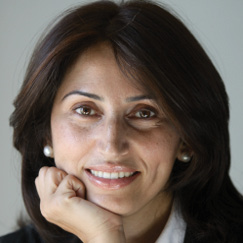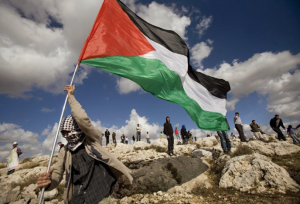Invariably, in Palestine, when I meet a person for the first time, I am asked one of two questions: “Are you crazy? Why would you choose to live in Palestine when you can live in Canada (my place of birth) instead,” or, more frequently, “How can I emigrate?” Both of these questions trouble me for reasons that are much the same, for they imply that Palestine is not a place where one makes a career, lives a life, or plans a future. They are both perfectly understandable, for why would someone choose to live under military rule or a system of apartheid? Why wouldn’t young people seek to have a better life in a different place where they are free, instead of living behind walls and surrounded by checkpoints?
But this is only part of the story, since our people have lived for decades under a crushing occupation and have not only survived, they have thrived, despite whatever cruelty Israel has thrown our way. So why the change? Why the desire to emigrate? The difference between previous generations and our youth today is not their resilience – for this is a generation that has had to endure some of Palestine’s most challenging days while watching their peers around the world soar. Rather, the difference lies in the fact that Palestinian youth have been sold a false bill of goods from virtually everyone around them. Whether the false promises of liberation following negotiations, the false promises of international law and human rights, or the false promises of democracy and transparency, this generation has borne witness to complete stagnation, in the face of some of the most significant advances in technology and society. With this in mind, and with no prospects for change, it is unsurprising that our youth see their futures in the United States, Canada, Europe, the Gulf countries, or elsewhere – in places where there is freedom from occupation, checkpoints, and apartheid. In Palestine, however, we live with the knowledge that today is better than tomorrow.
And here lies the problem: we have come to realize that phrases such as “empowering youth” or “creating a better life for Palestinian youth” are empty of meaning. While Canada and the United States have elected national leaders who are in their forties, our youth do not even have the prospects of voting, much less taking on positions of leadership. Leaders brag about how many years they have been actively involved in the struggle and not about how many youths they have recruited to lead. In education and employment, it is not much better. While we have the highest literacy rate in the Arab world and are counted among those with the highest number of women in post-secondary education, these staggering figures have not translated into decreased unemployment for Palestinian youth. Our youth remain saddled by an antiquated tawjihi system that does little more than encourage memorization rather than learning.
More than anything, I fear the Palestinian “brain drain” and “energy drain,” for without our youth, our future as a nation on our land is bleak. This is precisely what Israel wants: to make life so difficult that Palestinians eventually leave. But we can (and must) stop this project. It begins by ensuring that opportunities be given to enable people to thrive, not simply survive. Our economy needs to be revamped so that the Palestinian Authority is no longer the single largest employer in the West Bank and Gaza Strip. Our education system needs to be revamped to meet the needs of a technologically changing world. We must invest in initiatives that break our dependence on working in the settlements or in Israel. Most importantly, we need to make way for youth to finally take their role in leading institutions – political, legal, and civil-society, among others.
For decades, Palestinians have built countries around the world; now is the time to build our own and leave a legacy that will withstand the next wave of Israeli abuses. After all, we do not have another country: this one is ours and will remain ours… no matter what.



